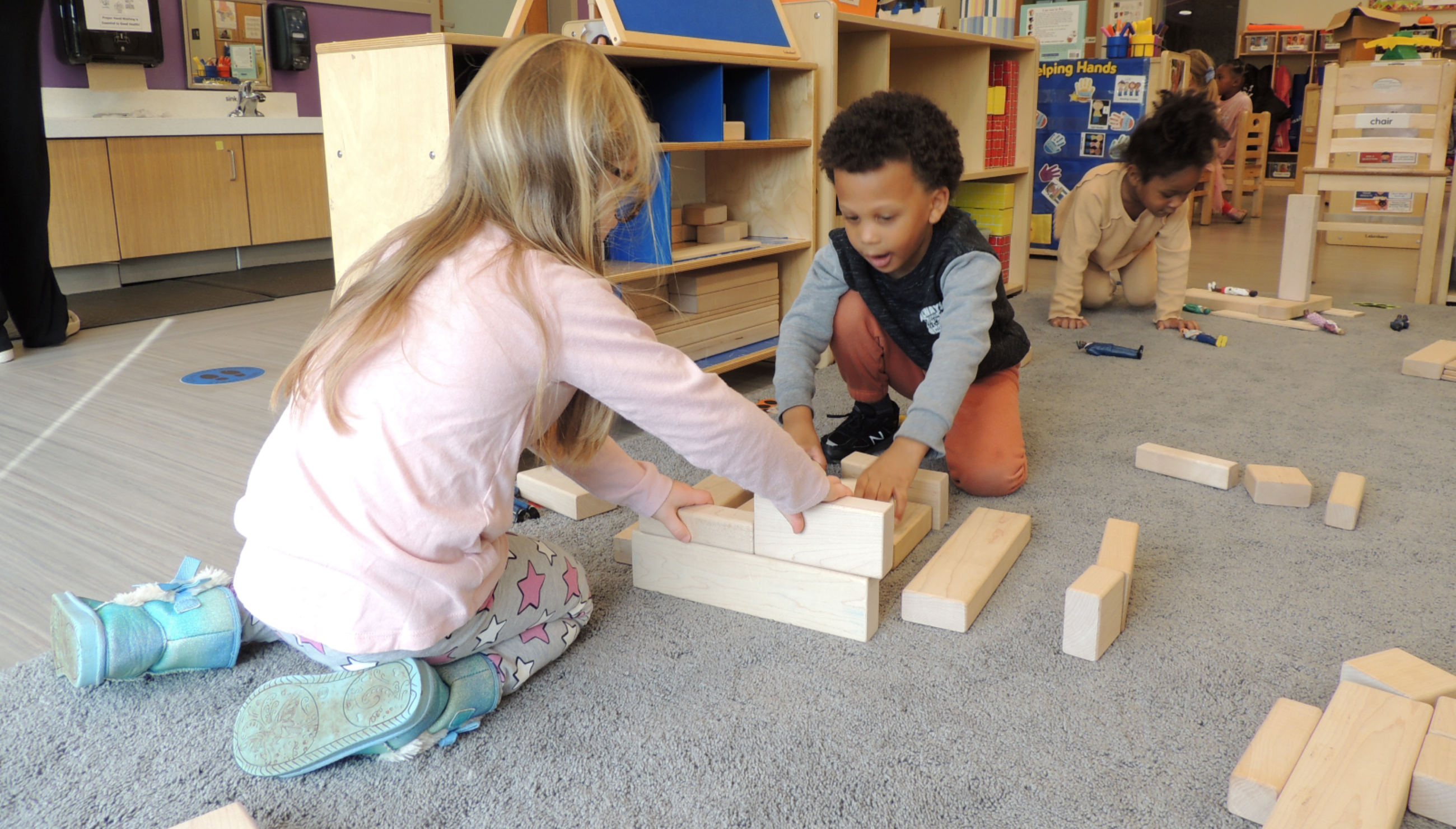Stay ahead of the curve as a political insider with deep policy analysis, daily briefings and policy-shaping tools.
Request a DemoSince 1992, multi-million-dollar lottery jackpots, instant scratch-off games and other legal gambling proceeds have produced more than $27 billion in funds for educational programs in Georgia. The Georgia Lottery has paid for more than two million 4-year-olds to attend pre-kindergarten programs.
Here are some key things to know about Georgia’s pre-K program.
How is Georgia’s pre-K program funded?
The pre-K program in Georgia is funded by proceeds from state and national lottery ticket sales. After prize winners are paid, and administrative costs are covered, the net lottery proceeds are deposited by the Georgia Lottery Corporation into an education lottery reserve account managed by the state treasurer. Those monies are used exclusively to fund both pre-K and the HOPE college scholarship, grant and loan programs.
In Fiscal Year 2023, which ended in June, $1.5 billion in lottery proceeds were deposited into the education lottery reserve account, which totaled $2.16 billion. The state budgeted $444 million in lottery funds to be spent on pre-K in Fiscal Year 2024, which began in Julyy.
Is pre-K free in Georgia?
Yes. Enrollment in a state-funded pre-K program is free. But pre-K slots are limited by the amount of funding the state Legislature appropriates for pre-K programs each year, and the number of Georgia pre-K program sites that are open and offering pre-K classes in a given area.
In Fiscal Year 2023, 60% of about 120,000 eligible 4-year-olds were served by Georgia pre-K programs, according to the Department of Early Care and Learning.
The average cost of private pre-K or preschool tuition for 4-year-olds in Georgia is $6,500 a year.
Some 4-year-olds in Georgia also receive free pre-K through the federal Head Start program, which provides free education and other child care services to children ages 0 to 5 from low-income households. Some nonprofit organizations help to subsidize private pre-K as well.
Is pre-K mandatory in Georgia?
No. Pre-K participation in Georgia is voluntary. Georgia law requires that students enroll in a public school, private school or home study program starting at age 6. Kindergarten is available in every public school system, but it is not mandatory.
Who is eligible for Georgia pre-K?
Georgia pre-K is currently offered to children who are residents of Georgia and who are at least 4-years-old by September 1 of the school year.

How do I enroll my child in a Georgia pre-K program?
Pre-K is offered at private child care centers and in public and private schools throughout the state.
A good place to start is the Department of Early Care and Learning website, which can help you find a pre-K program with slots available in your area, and provides detailed information about enrollment requirements. You will apply and enroll directly with the pre-K provider you choose.
You can also call 1-877-ALL GA KIDS (1-877-255-4254) for information about Georgia pre-K.
What do the Georgia pre-K programs and curriculum include?
Most pre-K programs operate on the local public school system calendar for 6.5 hours a day, 180 days a year. Students must attend five days a week during the school year to keep their spot in the class.
Pre-K program directors can choose from a dozen approved curricula that align with the Georgia Early Learning and Development Standards. The pre-K classroom standards are also correlated to Georgia’s Kindergarten Performance Standards. The primary goal is to get students ready for kindergarten by promoting the cognitive, physical and social emotional development of children while developing communication and literacy skills, and engaging in healthy play and learning activities.
What are the educational requirements for Georgia pre-K teachers?
All state-funded pre-K programs must have a lead teacher and an assistant teacher. Some pre-K classrooms also have teacher’s aides.
Lead pre-k teachers must have an Early Childhood Education bachelor’s degree or an ECE-related bachelor’s degree, master’s degree or higher credential OR a bachelor’s degree not related to ECE plus a credential such as an associate degree or technical college certificate with an ECE major; a Montessori diploma; or a Preschool Child Development Associate (CDA) credential issued by the ECE Council for Professional Recognition.
Assistant pre-K teachers must have one of these credentials: Paraprofessional Certificate (issued by the Georgia Professional Standards Commission) or a Child Development Associate (CDA) credential. Also, those with higher credentials, including a technical certificate or technical college diploma in Early Childhood Education; an associate degree; a Montessori diploma, or a bachelor’s degree qualify.
A teacher’s aide usually has a high school diploma or its equivalent.
Are there any classroom size limits for Georgia pre-K?
Yes. The maximum number of students in a pre-K classroom is 22. In the 2023-24 school year, the state is trying out a pilot program that limits some pre-K classrooms to 20 students.
The maximum teacher to student ratio for pre-K classrooms is 1 to 11.
What’s the difference between preschool, pre-K, kindergarten and day care?
A preschool program is often designed for 2- to 4-year-olds with an early childhood curriculum that may include a playful learning environment and a mix of educational, play and recreational activities and hands-on learning experiences. The staff will work on developing a child’s communication, social skills and emotional growth.
A pre-K program will include many of the same elements, as well as more structured activities aimed at preparing children to be ready for kindergarten and a K-12 school environment.
Kindergarten, usually for 5-year-olds, is another step up from pre-K in terms of how structured and challenging the curriculum and activities are. It’s designed to get children ready for first grade, when school attendance in Georgia becomes compulsory. Quality kindergarten programs follow Georgia’s Kindergarten Performance Standards.
Day care is a catch-all term for child care environments that provide care and educational activities for infants and toddlers as well as children through age 5 or 6 during the school or work day. They may also include after-school care and enrichment programs for older children enrolled in K-12 schools.
Related stories:
Have questions, comments or tips on education in Georgia? Contact Jill Jordan Sieder on X @journalistajill or at [email protected].
Facebook @STATEAFFAIRSGA
Instagram @STATEAFFAIRSGA
LinkedIn @STATEAFFAIRS
Header photo: Pre-K students at the Barack and Michelle Obama Center in south Atlanta during play time. (Credit: Jill Jordan Sieder).
Gov. Kemp calls on state agencies to be fiscally restrained amid record $16.5B surplus
The Gist Gov. Brian Kemp asked the state’s 51 government agencies for continued fiscal restraint when drafting their amended fiscal year 2025 and 2026 budgets. Most agencies adhered to his request even as the state’s general fund surplus hit a record $16.5 billion last month. Forty-five agencies, excluding state courts, followed the governor’s instructions to …
Georgia defies bomb threats as election chief declares a “free, fair and fast” vote amid record turnout
ATLANTA – Despite dealing with over 60 bomb threats, Georgia’s election chief said Tuesday the state’s general election went smoothly. Georgia had a record turnout with nearly 5.3 million people voting, Secretary of State Brad Raffensperger told reporters. Election officials in the state’s 159 counties have until 5 p.m. to certify votes. “We had a …
In the (state)house: Meet the newest members of the Georgia legislature
When lawmakers reconvene at the state Capitol on Jan. 13, there’ll be a cadre of new faces in the 236-member Georgia General Assembly, one of the nation’s largest state legislatures. All 236 statehouse seats were up for election this year. Most candidates ran unopposed. Incumbents in contested races easily kept their seats, with the exception …
2 young Democrats win Statehouse seats as Republicans hold majority
ATLANTA — Many Statehouse incumbents appeared to beat back challengers Tuesday, ensuring their return to the Capitol in January. Republicans retain control of the House and Senate. Two Generation Z candidates will join the 236-member Legislature as new members of the House of Representatives: Democrats Bryce Berry and Gabriel Sanchez. Berry, a 22-year-old Atlanta middle …





